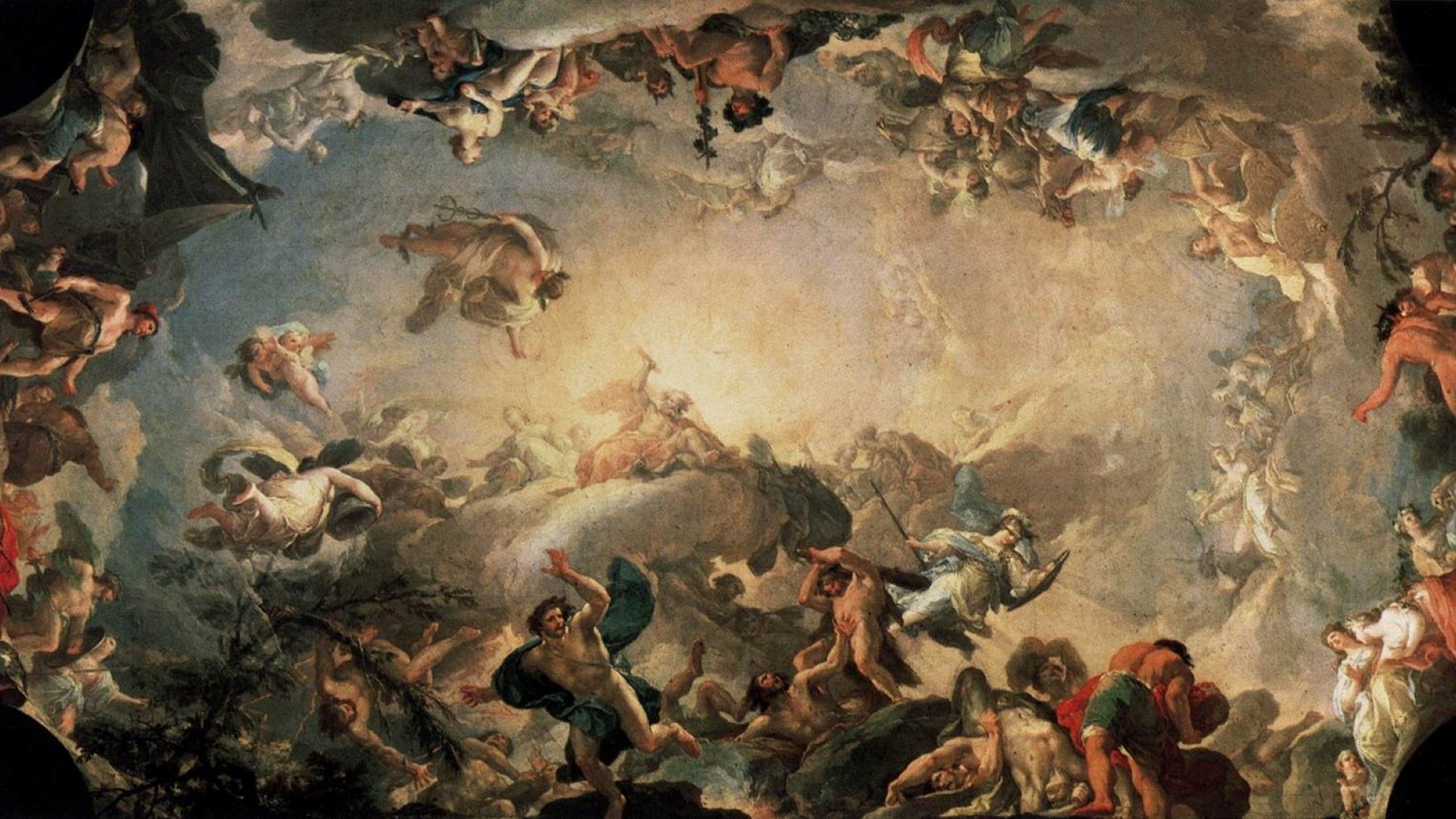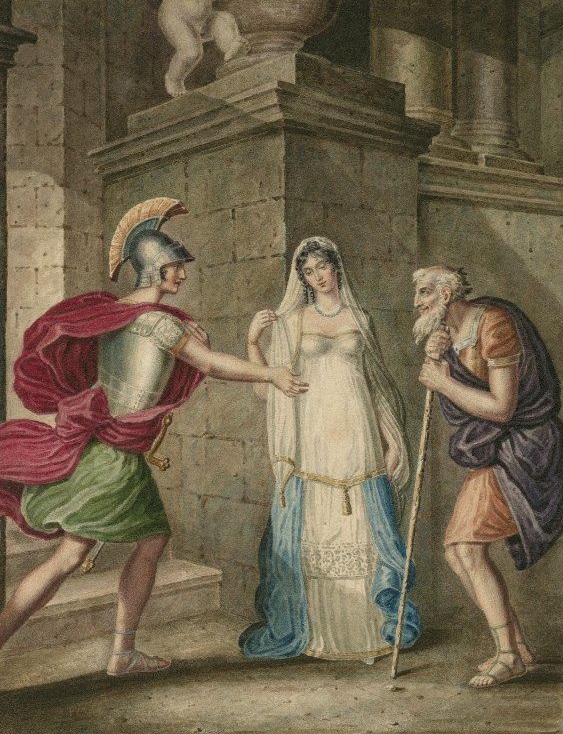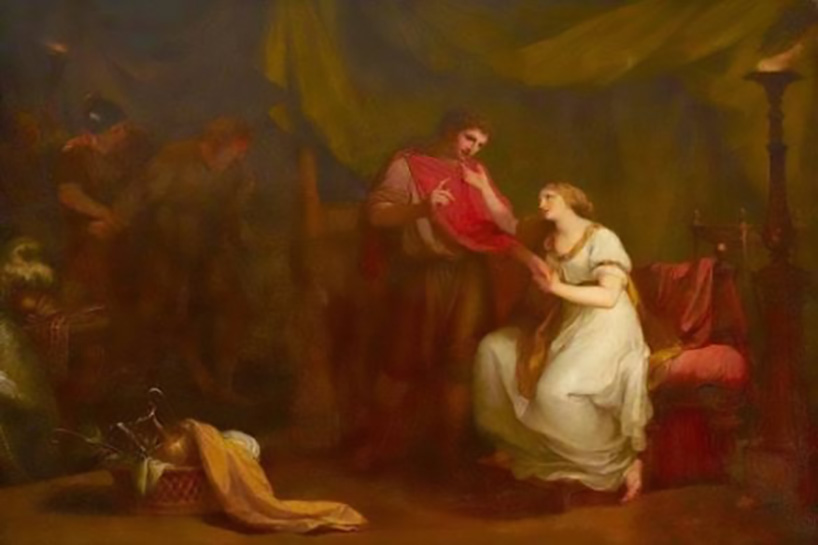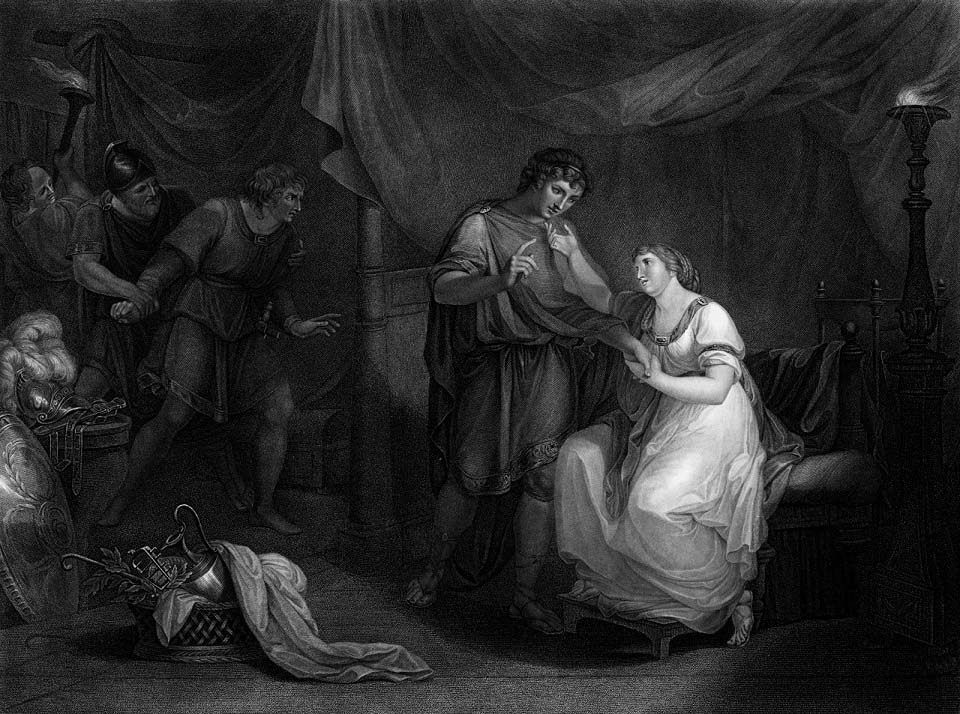
Troilus

Overall, Troilus (Ancient Greek: Τρωΐλος) is a legendary character associated with the story of the Trojan War. The first surviving reference to him is in Homer's Iliad, which some scholars theorize was composed by bards and sung in the late 9th or 8th century BC.
In Greek mythology, Troilus is a young Trojan prince, one of the sons of King Priam (or Apollo) and Hecuba. Prophecies link Troilus' fate to that of Troy and so he is ambushed and murdered by Achilles. Sophocles was one of the writers to tell this tale.
It was also a popular theme among artists of the time. Ancient writers treated Troilus as the epitome of a dead child mourned by his parents. He was also regarded as a paragon of youthful male beauty.
In Western European medieval and Renaissance versions of the legend, Troilus is the youngest of Priam's five legitimate sons by Hecuba. Despite his youth he is one of the main Trojan war leaders. He dies in battle at Achilles' hands.
In a popular addition to the story, originating in the 12th century, Troilus falls in love with Cressida, whose father Calchas has defected to the Greeks. Cressida pledges her love to Troilus but she soon switches her affections to the Greek hero Diomedes when sent to her father in a hostage exchange.
Chaucer and Shakespeare are among the authors who wrote works telling the story of Troilus and Cressida. Within the medieval tradition, Troilus was regarded as a paragon of the faithful courtly lover and also of the virtuous pagan knight. Once the custom of courtly love had faded, his fate was regarded less sympathetically.
His Story
Troilus is a minor figure in Homer’s Iliad, but is thought to have been more prominent in the lost epic poem, the Cypria.
The surviving texts from antiquity though, tell of Troilus being the son of King Priam of Troy and his wife Hecabe; making Troilus full sibling to the likes of Hector, Paris, Helenus and Cassandra.
Alternatively, some tell of Troilus not being a son of Priam at all, but was instead fathered by the god Apollo, who slept with Hecabe.
Some tell of Troilus being the youngest son of Priam and Hecabe, although it is also commonly said that Polydorus was the youngest son of the king and queen of Troy.
The name Troilus might be interpreted to mean “little Tros”, and the name certainly brings to mind other figures from Greek mythology, Ilus, who built Ilium, and Tros, whose name was used, as Ilium was renamed Troy.
During the Trojan War, many prophecies were told about what the Achaeans needed to achieve to ensure victory, and what must happen if the Trojans were to avoid defeat. One prophecy on the Trojan side said that Troy would not fall as long as Laomedon’s tomb remained intact, and another said that Troy would not be defeated if Troilus made it to his 20th birthday.
It was thereafter said that the goddess Athena informed the Achaeans of this prophecy, and advised Achilles that he should seek out Troilus, and kill him.
There is some disagreement about when Achilles eventually does seek out Troilus, with some stating that events occurred early in the war, whilst others tell of it only occurring in the tenth year of fighting.

In either case it was normally said that Troilus was ambushed, possibly when in the company of Polyxena, his sister. Troilus was discovered outside of the protective walls of Troy by Achilles, possibly as he sought to exercise his horses; with Achilles coming upon Troilus near to the town of Thymbra.
Troilus, having spotted Achilles, sought to ride away from the Achaean hero, but his horse was killed beneath him, and so Troilus ran on, until he entered the temple of Apollo at Thymbra. Rather than prove to be a place of sanctuary though, the temple of Apollo proved to be the place of Troilus’ death, for Achilles followed him inside, and ignoring the potential consequence of committing murderous sacrilege, killed Troilus.
Alternatively, there was no ambush, and Troilus, and his brother Lycaon, were simply captured upon the battlefield, with Achilles subsequently ordering their execution, resulting in Troilus having his throat cut.
The story of the ambush of Troilus could back up the statement of Aeneas, in the Aeneid, that it was an unequal fight between Achilles and Troilus, but some later writers in antiquity link the statement to the fact that Troilus was killed on the battlefield, not in Apollo’s tomb.
In the work attributed to Dares Phrygius, History of the Fall of Troy, great detail is given to the courage of Troilus, claiming that only Hector matched him in terms of bravery.
Thus it was, that during the Trojan War, Troilus was made commander of one section of the army of King Priam, putting him on par with Aeneas, Helenus, and Paris, and perhaps also with Hector.
Dares Phyrgius then tells of his great achievements on the battlefield, where in battles across the conflict, Troilus injures Agamamenon, Diomedes, and Menelaus, killing many other lesser heroes.
During the absence of Achilles from the fighting, Troilus achieved some of his greatest achievements, causing the Achaean forces to retreat back to their ships, with Troilus only being prevented from achieving a crippling victory by the intervention of Ajax the Great.
It was then that Achilles re-joined the fight, but when he first faced Troilus he too was wounded by the Trojan prince, and was only able to re-join the war after 6 days of recuperation. Afterwards, Achilles again faced Troilus, but Troilus was impeded when his horse was wounded, and Achilles came upon the stricken Troilus before the son of Priam could untangle himself the reins of his force. Troilus was thus unable to defend himself as Achilles truck the killing blow.
Achilles would have taken the body of Troilus back to the Achaean camp, but Memnon intervened to rescue Troilus, just as the body of Patroclus had been protected by Achaean heroes in a different fight.
The death of Troilus, in whichever manner, caused much grief amongst the Trojan people, and a period of mourning followed. Priam himself was greatly grieved by the death of Troilus, who was amongst his favoured sons.
The death of Troilus would also bring about the death of Achilles, for it was said that Apollo now decided to directly intervene to bring about the death of the Achaean; the reason for this intervention being either because Troilus was indeed his own son, or because of the sacrilege of Troilus’ death in his temple.
Thus, a few days later, the arrow of Paris was guided to its mark when it was unleashed against Achilles.

Sources
Stasinus of Cyprus, Cypria
Phrynichus, Troilos
Sophocles, Troilos
Strattis, Troilos
Dares Phrygius, de excidio Trojae historia
Homer, Iliad
Stesichorus, possibly in Iliupersis
Ibycus, unknown text of which only a few words survive
Sophocles, Polyxene
Lycophron, Alexandra
Virgil, Aeneid
Seneca the Younger, Agamemnon
Dictys Cretensis, Ephemeridos belli Trojani
Ausonius, Epitaphs
Quintus of Smyrna, Posthomerica
Ibycus, Polycrates poem
Callimachus, Epigrams
Plautus, Bacchides
Cicero, Tusculanae Quaestiones
Horace, Odes Book 2
Statius, Silvae
Dio Chrysostom, Discourses
"Clement", Clementine Homilies
Various anonymous authors, Scholia to the Iliad
Hyginus, Fabulae
The "Pseudo-Apollodorus", Library
Eutychius Proclus, Chrestomathy
Servius, Scholia to the Aeneid
First Vatican Mythographer, Mythography
Eustathius of Thessalonica, Scholia to the Iliad
John Tzetzes, Scholia to the Alexandra
Greek Legends and Myths
Sommerstein, A. H., Fitzpatrick, D. & Talby, T. (2007)
"Wikipedia"
Our Mobile Application
Check out Our Mobile Application "Ancient Greece Reloaded"


